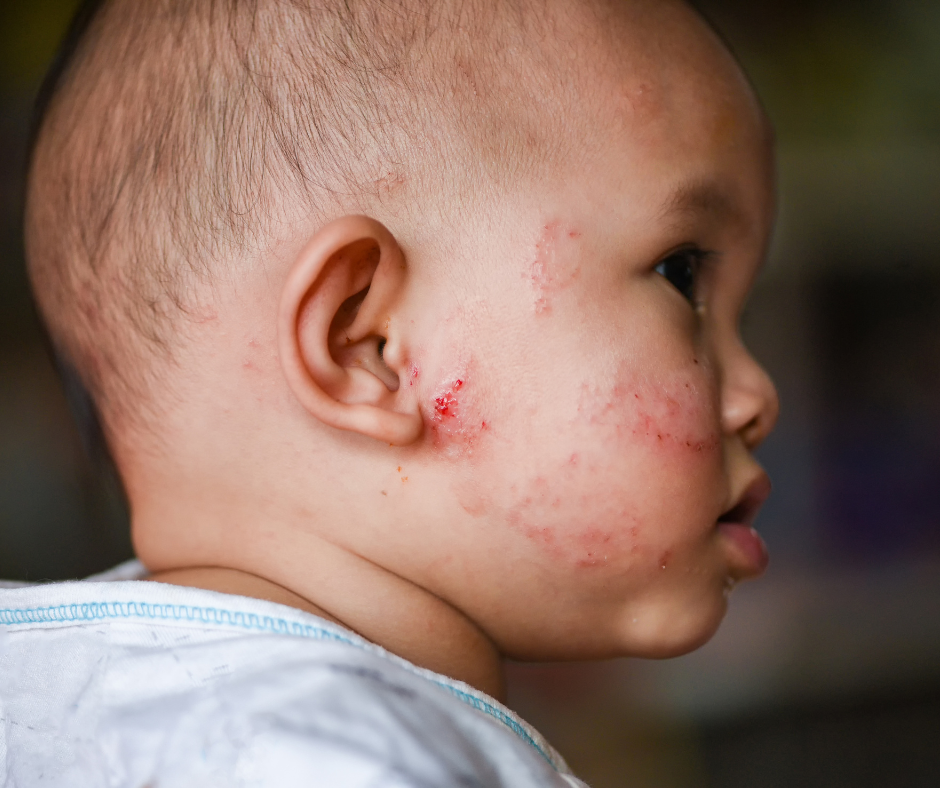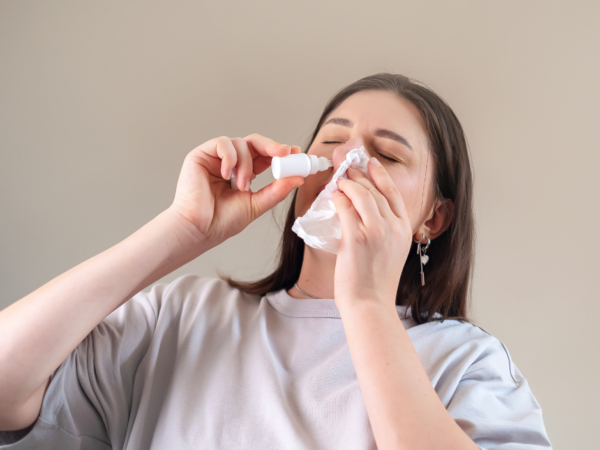When your child scratches endlessly through the night, when red, inflamed patches bloom across their soft skin, and when you feel helpless watching them suffer—you are not alone. Childhood eczema, also known as atopic dermatitis, is not just a rash. It’s a signal. A cry for help. A reminder that the environment, diet, stress, and even our everyday routines could be impacting our children far more than we realize.
This is not just a medical condition. It’s an emotional crisis—one that often goes unnoticed, misunderstood, and tragically under-addressed.
What Is Eczema in Young Children?
Eczema is a chronic skin disorder that causes inflammation, dryness, and itchiness. In young children, especially those under five, it often appears on the face, scalp, hands, and behind the knees. While it may seem like a harmless skin irritation, eczema is deeply rooted in the child’s immune response—an overreaction to environmental or internal triggers.
The Real Triggers: It’s Not Just the Skin
1. Environmental Allergens:
Dust mites, pet dander, pollen, and mold can set off allergic reactions in children, triggering eczema flare-ups without warning. Even the detergent used to wash their clothes or the fragrance in baby wipes can be enough to inflame sensitive skin.
2. Dietary Factors:
Food sensitivities, especially to dairy, eggs, soy, and nuts, can intensify eczema symptoms. A child’s gut health plays a crucial role, and any imbalance can spark immune dysregulation, leading to inflammation on the skin.
3. Stress & Emotional Trauma:
Yes, even children experience stress. A change in routine, parental tension, or emotional distress can disrupt their nervous system, triggering inflammatory skin responses.
4. Genetics & Family History:
Children born into families with a history of eczema, asthma, or hay fever are more susceptible. But this doesn’t mean the condition is inevitable—it means proactive awareness is essential.
5. Over-Cleansing & Skincare Products:
In a world obsessed with hygiene, over-washing with harsh soaps and excessive use of antibacterial products strips the skin’s natural protective barrier, leaving it raw and vulnerable.
Why This Matters Now
Every day you wait is another day your child suffers in silence. Every scratch, every sleepless night, every moment they shy away from playing with other kids—it’s all preventable.
What’s worse is that untreated eczema can lead to skin infections, emotional stress, and even lifelong skin sensitivity. Your child deserves a childhood free from pain, embarrassment, and chronic inflammation.
What You Must Do Immediately
-
Switch to hypoallergenic, fragrance-free skincare products.
-
Track and eliminate possible food triggers with the help of a pediatric allergist or nutritionist.
-
Moisturize relentlessly—multiple times a day with doctor-approved emollients.
-
Create a skin-safe environment at home: air purifiers, dust-free bedding, and chemical-free cleaning products.
-
Prioritize mental and emotional wellness: ensure your child feels heard, safe, and calm.
-
See a pediatric dermatologist as soon as possible—not just when things get worse.
The Emotional Toll No One Talks About
What many forget is the psychological impact of eczema on children. They may feel ashamed of their appearance, isolated from peers, and burdened by constant discomfort. This can affect their self-esteem, mental development, and even academic performance.
As a parent or caregiver, you’re not just managing a skin condition—you’re protecting your child’s quality of life. And the time to act is right now.
Final Word: Don’t Wait for It to Get Worse
Eczema doesn’t just go away. It evolves. What begins as a dry patch today could become a life-altering struggle tomorrow if not handled correctly. Equip yourself with knowledge, be proactive, and never ignore the signs. Your child’s comfort, confidence, and health depend on your action.



